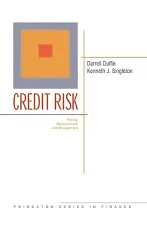This site uses cookies
We use necessary cookies to make our sites work. We'd also like to set additional cookies to analyse how our sites are performing, to improve the relevance of our ads and to optimise your experience. These will be set only if you accept. To learn more, view our privacy policy .

Privacy Preferences
Necessary cookies.
These cookies are necessary for the website to function normally and cannot be turned off. They are usually set in response to actions made by you which amount to a request for services, such as setting your privacy preferences, logging in or filling in forms. You can block or delete them in your browser settings, but this may affect how the website functions.
Analytics cookies
These cookies allow us to monitor how our websites and services are performing by collecting data about how visitors interact with our sites. The data is collected in a way that does not directly identify anyone.
Marketing cookies
These cookies are set through our site by our advertising partners. They may be used by those companies to build a profile of your interests and show you relevant ads on other sites. If you disable this setting, you will experience less targeted advertising.
Functionality cookies
These cookies enable us to provide enhanced functionality and personalisation. They may be set by us or by third party providers whose services we have added to our pages.
Opportunities for doctoral research at the Credit Research Centre
The Credit Research Research Centre (CRC) is one of the UK’s leading centres for research into all aspects of credit to both consumers and customers. Members of the CRC have research interests ranging broadly across the economics of credit, credit scoring, customer scoring and SME risk modelling. Credit scoring involves the application of models to predict the probability that an applicant for credit will default on the loan. It has been described as the most successful application of Operational Research techniques ever. Members of the Centre have written the world’s most authoritative text on the subject as well as having published in the world’s best journals in the area.
Following is a sample of the range of opportunities for doctoral study which currently exist within the Centre.
Natural Language Processing and Multimodal Learning for Financial Risk and Default Prediction
Recent advancements in Natural Language Processing (NLP) and multimodal learning have unlocked new opportunities to enhance financial performance and risk prediction. Techniques such as transformer models and BERT have excelled in extracting valuable insights from textual data. Moreover, integrating multimodal data—including text, numerical data, voice, and visual information—has shown great promise in improving predictive models. These innovations underscore the significance of interdisciplinary approaches to tackle complex financial challenges. We invite motivated PhD candidates to contribute to cutting-edge projects in this dynamic field.
Required Skills and Qualifications
Educational background.
- A strong first degree in Quantitative Finance, Business Analytics, Data Science, Computer Science, Statistics, or a related field.
Machine Learning Knowledge
- Solid foundation in machine learning algorithms and their practical applications
- Familiarity with multimodal learning and data integration techniques is a plus.
NLP Expertise
- Comprehensive understanding of natural language processing techniques and tools
- Experience with transformer models, BERT, GPT, or similar frameworks is highly desirable.
Programming Skills
- Proficiency in programming languages such as Python or R
- Experience with machine learning libraries is essential.
Supervisor: Dr Yizhe Dong
Ethical Artificial Intelligence models
The adoption of Artificial Intelligence (AI) technologies in the Banking industry has boosted over the last half a decade. A debate has emerged on different ethical concerns and consequences of the use of AI, not only in banking, but also other areas such as justice, law enforcement and medicine. This project will explore the development of AI-based methodologies that can overcome or mitigate these issues, focusing on applications to credit scoring and financial risk management.
Required qualifications: A good first degree in Business Analytics, Operational Research, Data Science, Computer Science, or Engineering.
Supervisor: Dr Belen Martin-Barragan
Further information
If you have any questions about these topics, please contact Credit Research Centre .
Opportunities for Doctoral Research at the Credit Research Centre
The Credit Research Research Centre (CRC) is one of the UK’s leading centres for research into all aspects of credit to both consumers and customers. Members of the CRC have research interests ranging broadly across the economics of credit, credit scoring, customer scoring and SME risk modelling. Credit scoring involves the application of models to predict the probability that an applicant for credit will default on the loan. It has been described as the most successful application of Operational Research techniques ever. Members of the Centre have written the world’s most authoritative text on the subject as well as having published in the world’s best journals in the area.
Following is a sample of the range of opportunities for doctoral study which currently exist within the Centre.
Stress Testing Consumer Credit Portfolios
Regulators and financial, institutions have been ‘stress testing’ their loan portfolios to examine the amount of capital that an institution may expect to maintain to cover for unexpected losses. However there are many different types of stress test and many methodological difficulties in carrying a stress test out. In this project the student will consider how discrete survival models can be used to enable stress tests to be carried out in particular how the macreoeconomic variables can be ‘combined’ in some sense to yield a valid ‘test’. The stability of expected loss distributions will be considered in detail.
Contact: Professor Jonathan Crook
Modelling Loss Given Default and Recoveries for Corporate Loans
Each bank that is regulated under the Basel III Accord has to maintain an amount of capital in case of unexpected losses. The Accord indicates how the minimum amount of capital should be computed. The amount depends on the amount of risk weighted assets that a bank has and an important component of this is the forecast levels of Loss Given Default for each bucket of a loan portfolio. In this project the LDG for each of a large sample of corporate loans will be modelled. Various algorithms and data transformations will be considered as will the incorporation of macroeconomic variables. Stress testing will be carried out.
Risk Concentration
The amount of capital a bank is required to hold in case of unexpected losses is governed by the Basel II Accord. The relevant computation of the risk weighted assets makes some ‘assumptions’ about the correlation between the asset values. The aim of this project is to explore methods of measuring the degree of concentration of risk in a credit portfolio. The project will consider ad hoc and model based measures and practical approaches to its empirical measurement.
Modelling Bankruptcies
There is a large amount of literature on reasons for person bankruptcy. In this project the sociodemographic characteristics of those who declare bankruptcy will be modelled using mixed fixed and random effect models. The fixed effects will include states of the macroeconomy. Initially publicly available data from surveys will be used. Later we will be to seek data from a financial institution.
Exploring Affordability in Retail Credit
Traditional credit scoring used by the high street lenders creates two classes those who will be given credit and those who will not. Individuals are therefore excluded from credit and often seek alternative and more expensive forms of credit.
More recently risk-based pricing has been introduced by high street lenders to provide credit to individuals who under traditional models would not have received credit but who will be charged a rate associated with the their risk profile. This means individuals with low risk ratings will be required to higher interest rates. This raises the question of whether individuals will be able to afford the credit and the need for the lender to be able to assess the individual’s ability to pay. The research will explore both of these related aspects. It will explore the available data on individual economic resources arising from Income and Expenditure Surveys, and other published sources. It will also explore how this information can be used to enhance the models currently used to assess affordability.
Comparisons of Household Credit Constraints
Credit constraints have profound implications for the applicability of the Permanent Income Hypothesis, for the effects of certain government fiscal and credit policies. However the empirical literature has not definitively identified which households are credit constrained and how the characteristics of those constrained has changed before and after the recent financial crisis. The aim of this project is to identify the characteristics of households who are credit constrained over the last decade in a variety of countries using different data sources. These include self-reported credit constraints, implied credit constraints of ten used in the excess sensitivity of consumption literature, demand and supply of debt equations and administrative data.
Required qualifications: a good first degree in Economics and preferably an MSc in Economics.
About Stanford GSB
- The Leadership
- Dean’s Updates
- School News & History
- Business, Government & Society
- Centers & Institutes
- Center for Entrepreneurial Studies
- Center for Social Innovation
- Stanford Seed
About the Experience
- Learning at Stanford GSB
- Experiential Learning
- Guest Speakers
- Entrepreneurship
- Social Innovation
- Communication
- Life at Stanford GSB
- Collaborative Environment
- Activities & Organizations
- Student Services
- Housing Options
- International Students

Full-Time Degree Programs
- Why Stanford MBA
- Academic Experience
- Financial Aid
- Why Stanford MSx
- Research Fellows Program
- See All Programs
Non-Degree & Certificate Programs
- Executive Education
- Stanford Executive Program
- Programs for Organizations
- The Difference
- Online Programs
- Stanford LEAD
- Seed Transformation Program
- Aspire Program
- Seed Spark Program
- Faculty Profiles
- Academic Areas
- Awards & Honors
- Conferences
Faculty Research
- Publications
- Working Papers
- Case Studies
Research Hub
- Research Labs & Initiatives
- Business Library
- Data, Analytics & Research Computing
- Behavioral Lab
- Faculty Recruiting
- See All Jobs
Research Labs
- Cities, Housing & Society Lab
- Golub Capital Social Impact Lab
Research Initiatives
- Corporate Governance Research Initiative
- Corporations and Society Initiative
- Policy and Innovation Initiative
- Rapid Decarbonization Initiative
- Stanford Latino Entrepreneurship Initiative
- Value Chain Innovation Initiative
- Venture Capital Initiative
- Career & Success
- Climate & Sustainability
- Corporate Governance
- Culture & Society
- Finance & Investing
- Government & Politics
- Leadership & Management
- Markets and Trade
- Operations & Logistics
- Opportunity & Access
- Technology & AI
- Opinion & Analysis
- Email Newsletter
Welcome, Alumni
- Communities
- Digital Communities & Tools
- Regional Chapters
- Women’s Programs
- Identity Chapters
- Find Your Reunion
- Career Resources
- Job Search Resources
- Career & Life Transitions
- Programs & Webinars
- Career Video Library
- Alumni Education
- Research Resources
- Volunteering
- Alumni News
- Class Notes
- Alumni Voices
- Contact Alumni Relations
- Upcoming Events
Admission Events & Information Sessions
- MBA Program
- MSx Program
- PhD Program
- Alumni Events
- All Other Events
- Operations, Information & Technology
- Organizational Behavior
- Political Economy
- Classical Liberalism
- The Eddie Lunch
- Accounting Summer Camp
- California Econometrics Conference
- California Quantitative Marketing PhD Conference
- California School Conference
- China India Insights Conference
- Homo economicus, Evolving
- Political Economics (2023–24)
- Scaling Geologic Storage of CO2 (2023–24)
- A Resilient Pacific: Building Connections, Envisioning Solutions
- Adaptation and Innovation
- Changing Climate
- Civil Society
- Climate Impact Summit
- Climate Science
- Corporate Carbon Disclosures
- Earth’s Seafloor
- Environmental Justice
- Operations and Information Technology
- Organizations
- Sustainability Reporting and Control
- Taking the Pulse of the Planet
- Urban Infrastructure
- Watershed Restoration
- Junior Faculty Workshop on Financial Regulation and Banking
- Ken Singleton Celebration
- Marketing Camp
- Quantitative Marketing PhD Alumni Conference
- Presentations
- Theory and Inference in Accounting Research
- Stanford Closer Look Series
- Quick Guides
- Core Concepts
- Journal Articles
- Glossary of Terms
- Faculty & Staff
- Subscribe to Corporate Governance Emails
- Researchers & Students
- Research Approach
- Charitable Giving
- Financial Health
- Government Services
- Workers & Careers
- Short Course
- Adaptive & Iterative Experimentation
- Incentive Design
- Social Sciences & Behavioral Nudges
- Bandit Experiment Application
- Conferences & Events
- Get Involved
- Reading Materials
- Teaching & Curriculum
- Energy Entrepreneurship
- Faculty & Affiliates
- SOLE Report
- Responsible Supply Chains
- Current Study Usage
- Pre-Registration Information
- Participate in a Study
Credit Risk

In this book, two of America’s leading economists provide the first integrated treatment of the conceptual, practical, and empirical foundations for credit risk pricing and risk measurement. Masterfully applying theory to practice, Darrell Duffie and Kenneth Singleton model credit risk for the purpose of measuring portfolio risk and pricing defaultable bonds, credit derivatives, and other securities exposed to credit risk. The methodological rigor, scope, and sophistication of their state-of-the-art account is unparalleled, and its singularly in-depth treatment of pricing and credit derivatives further illuminates a problem that has drawn much attention in an era when financial institutions the world over are revising their credit management strategies.
Duffie and Singleton offer critical assessments of alternative approaches to credit-risk modeling, while highlighting the strengths and weaknesses of current practice. Their approach blends in-depth discussions of the conceptual foundations of modeling with extensive analyses of the empirical properties of such credit-related time series as default probabilities, recoveries, ratings transitions, and yield spreads. Both the “structura” and “reduced-form” approaches to pricing defaultable securities are presented, and their comparative fits to historical data are assessed. The authors also provide a comprehensive treatment of the pricing of credit derivatives, including credit swaps, collateralized debt obligations, credit guarantees, lines of credit, and spread options. Not least, they describe certain enhancements to current pricing and management practices that, they argue, will better position financial institutions for future changes in the financial markets.
Credit Risk is an indispensable resource for risk managers, traders or regulators dealing with financial products with a significant credit risk component, as well as for academic researchers and students.
- See the Current DEI Report
- Supporting Data
- Research & Insights
- Share Your Thoughts
- Search Fund Primer
- Affiliated Faculty
- Faculty Advisors
- Louis W. Foster Resource Center
- Defining Social Innovation
- Impact Compass
- Global Health Innovation Insights
- Faculty Affiliates
- Student Awards & Certificates
- Changemakers
- Dean Jonathan Levin
- Dean Garth Saloner
- Dean Robert Joss
- Dean Michael Spence
- Dean Robert Jaedicke
- Dean Rene McPherson
- Dean Arjay Miller
- Dean Ernest Arbuckle
- Dean Jacob Hugh Jackson
- Dean Willard Hotchkiss
- Faculty in Memoriam
- Stanford GSB Firsts
- Annual Alumni Dinner
- Class of 2024 Candidates
- Certificate & Award Recipients
- Dean’s Remarks
- Keynote Address
- Teaching Approach
- Analysis and Measurement of Impact
- The Corporate Entrepreneur: Startup in a Grown-Up Enterprise
- Data-Driven Impact
- Designing Experiments for Impact
- Digital Marketing
- The Founder’s Right Hand
- Marketing for Measurable Change
- Product Management
- Public Policy Lab: Financial Challenges Facing US Cities
- Public Policy Lab: Homelessness in California
- Lab Features
- Curricular Integration
- View From The Top
- Formation of New Ventures
- Managing Growing Enterprises
- Startup Garage
- Explore Beyond the Classroom
- Stanford Venture Studio
- Summer Program
- Workshops & Events
- The Five Lenses of Entrepreneurship
- Leadership Labs
- Executive Challenge
- Arbuckle Leadership Fellows Program
- Selection Process
- Training Schedule
- Time Commitment
- Learning Expectations
- Post-Training Opportunities
- Who Should Apply
- Introductory T-Groups
- Leadership for Society Program
- Certificate
- 2024 Awardees
- 2023 Awardees
- 2022 Awardees
- 2021 Awardees
- 2020 Awardees
- 2019 Awardees
- 2018 Awardees
- Social Management Immersion Fund
- Stanford Impact Founder Fellowships
- Stanford Impact Leader Prizes
- Social Entrepreneurship
- Stanford GSB Impact Fund
- Economic Development
- Energy & Environment
- Stanford GSB Residences
- Environmental Leadership
- Stanford GSB Artwork
- A Closer Look
- California & the Bay Area
- Voices of Stanford GSB
- Business & Beneficial Technology
- Business & Sustainability
- Business & Free Markets
- Business, Government, and Society Forum
- Second Year
- Global Experiences
- JD/MBA Joint Degree
- MA Education/MBA Joint Degree
- MD/MBA Dual Degree
- MPP/MBA Joint Degree
- MS Computer Science/MBA Joint Degree
- MS Electrical Engineering/MBA Joint Degree
- MS Environment and Resources (E-IPER)/MBA Joint Degree
- Academic Calendar
- Clubs & Activities
- LGBTQ+ Students
- Military Veterans
- Minorities & People of Color
- Partners & Families
- Students with Disabilities
- Student Support
- Residential Life
- Student Voices
- MBA Alumni Voices
- A Week in the Life
- Career Support
- Employment Outcomes
- Cost of Attendance
- Knight-Hennessy Scholars Program
- Yellow Ribbon Program
- BOLD Fellows Fund
- Application Process
- Loan Forgiveness
- Contact the Financial Aid Office
- Evaluation Criteria
- GMAT & GRE
- English Language Proficiency
- Personal Information, Activities & Awards
- Professional Experience
- Letters of Recommendation
- Optional Short Answer Questions
- Application Fee
- Reapplication
- Deferred Enrollment
- Joint & Dual Degrees
- Entering Class Profile
- Event Schedule
- Ambassadors
- New & Noteworthy
- Ask a Question
- See Why Stanford MSx
- Is MSx Right for You?
- MSx Stories
- Leadership Development
- How You Will Learn
- Admission Events
- Personal Information
- GMAT, GRE & EA
- English Proficiency Tests
- Career Change
- Career Advancement
- Career Support and Resources
- Daycare, Schools & Camps
- U.S. Citizens and Permanent Residents
- Requirements
- Requirements: Behavioral
- Requirements: Quantitative
- Requirements: Macro
- Requirements: Micro
- Annual Evaluations
- Field Examination
- Research Activities
- Research Papers
- Dissertation
- Oral Examination
- Current Students
- Education & CV
- International Applicants
- Statement of Purpose
- Reapplicants
- Application Fee Waiver
- Deadline & Decisions
- Job Market Candidates
- Academic Placements
- Stay in Touch
- Faculty Mentors
- Current Fellows
- Standard Track
- Fellowship & Benefits
- Group Enrollment
- Program Formats
- Developing a Program
- Diversity & Inclusion
- Strategic Transformation
- Program Experience
- Contact Client Services
- Campus Experience
- Live Online Experience
- Silicon Valley & Bay Area
- Digital Credentials
- Faculty Spotlights
- Participant Spotlights
- Eligibility
- International Participants
- Stanford Ignite
- Frequently Asked Questions
- Founding Donors
- Program Contacts
- Location Information
- Participant Profile
- Network Membership
- Program Impact
- Collaborators
- Entrepreneur Profiles
- Company Spotlights
- Seed Transformation Network
- Responsibilities
- Current Coaches
- How to Apply
- Meet the Consultants
- Meet the Interns
- Intern Profiles
- Collaborate
- Research Library
- News & Insights
- Databases & Datasets
- Research Guides
- Consultations
- Research Workshops
- Career Research
- Research Data Services
- Course Reserves
- Course Research Guides
- Material Loan Periods
- Fines & Other Charges
- Document Delivery
- Interlibrary Loan
- Equipment Checkout
- Print & Scan
- MBA & MSx Students
- PhD Students
- Other Stanford Students
- Faculty Assistants
- Research Assistants
- Stanford GSB Alumni
- Telling Our Story
- Staff Directory
- Site Registration
- Alumni Directory
- Alumni Email
- Privacy Settings & My Profile
- Success Stories
- The Story of Circles
- Support Women’s Circles
- Stanford Women on Boards Initiative
- Alumnae Spotlights
- Insights & Research
- Industry & Professional
- Entrepreneurial Commitment Group
- Recent Alumni
- Half-Century Club
- Fall Reunions
- Spring Reunions
- MBA 25th Reunion
- Half-Century Club Reunion
- Faculty Lectures
- Ernest C. Arbuckle Award
- Alison Elliott Exceptional Achievement Award
- ENCORE Award
- Excellence in Leadership Award
- John W. Gardner Volunteer Leadership Award
- Robert K. Jaedicke Faculty Award
- Jack McDonald Military Service Appreciation Award
- Jerry I. Porras Latino Leadership Award
- Tapestry Award
- Student & Alumni Events
- Executive Recruiters
- Interviewing
- Land the Perfect Job with LinkedIn
- Negotiating
- Elevator Pitch
- Email Best Practices
- Resumes & Cover Letters
- Self-Assessment
- Whitney Birdwell Ball
- Margaret Brooks
- Bryn Panee Burkhart
- Margaret Chan
- Ricki Frankel
- Peter Gandolfo
- Cindy W. Greig
- Natalie Guillen
- Carly Janson
- Sloan Klein
- Sherri Appel Lassila
- Stuart Meyer
- Tanisha Parrish
- Virginia Roberson
- Philippe Taieb
- Michael Takagawa
- Terra Winston
- Johanna Wise
- Debbie Wolter
- Rebecca Zucker
- Complimentary Coaching
- Changing Careers
- Work-Life Integration
- Career Breaks
- Flexible Work
- Encore Careers
- Join a Board
- D&B Hoovers
- Data Axle (ReferenceUSA)
- EBSCO Business Source
- Global Newsstream
- Market Share Reporter
- ProQuest One Business
- RKMA Market Research Handbook Series
- Student Clubs
- Entrepreneurial Students
- Stanford GSB Trust
- Alumni Community
- How to Volunteer
- Springboard Sessions
- Consulting Projects
- 2020 – 2029
- 2010 – 2019
- 2000 – 2009
- 1990 – 1999
- 1980 – 1989
- 1970 – 1979
- 1960 – 1969
- 1950 – 1959
- 1940 – 1949
- Service Areas
- ACT History
- ACT Awards Celebration
- ACT Governance Structure
- Building Leadership for ACT
- Individual Leadership Positions
- Leadership Role Overview
- Purpose of the ACT Management Board
- Contact ACT
- Business & Nonprofit Communities
- Reunion Volunteers
- Ways to Give
- Fiscal Year Report
- Business School Fund Leadership Council
- Planned Giving Options
- Planned Giving Benefits
- Planned Gifts and Reunions
- Legacy Partners
- Giving News & Stories
- Giving Deadlines
- Development Staff
- Submit Class Notes
- Class Secretaries
- Board of Directors
- Health Care
- Sustainability
- Class Takeaways
- All Else Equal: Making Better Decisions
- If/Then: Business, Leadership, Society
- Grit & Growth
- Think Fast, Talk Smart
- Spring 2022
- Spring 2021
- Autumn 2020
- Summer 2020
- Winter 2020
- In the Media
- For Journalists
- DCI Fellows
- Other Auditors
- Academic Calendar & Deadlines
- Course Materials
- Entrepreneurial Resources
- Campus Drive Grove
- Campus Drive Lawn
- CEMEX Auditorium
- King Community Court
- Seawell Family Boardroom
- Stanford GSB Bowl
- Stanford Investors Common
- Town Square
- Vidalakis Courtyard
- Vidalakis Dining Hall
- Catering Services
- Policies & Guidelines
- Reservations
- Contact Faculty Recruiting
- Lecturer Positions
- Postdoctoral Positions
- Accommodations
- CMC-Managed Interviews
- Recruiter-Managed Interviews
- Virtual Interviews
- Campus & Virtual
- Search for Candidates
- Think Globally
- Recruiting Calendar
- Recruiting Policies
- Full-Time Employment
- Summer Employment
- Entrepreneurial Summer Program
- Global Management Immersion Experience
- Social-Purpose Summer Internships
- Process Overview
- Project Types
- Client Eligibility Criteria
- Client Screening
- ACT Leadership
- Social Innovation & Nonprofit Management Resources
- Develop Your Organization’s Talent
- Centers & Initiatives
- Student Fellowships
Graduate Research
Doctoral Program in Decision, Risk and Financial Sciences
- Arrow-right #1 Business and Economics in Australia
- Arrow-right #8 Globally for graduate employability
Course overview
What is it about.
The Doctoral program in Decision, Risk and Financial Sciences at the University of Melbourne in the Department of Finance provides training in the conceptual principles and research techniques across the social, biological and mathematical sciences fields that analyse human decision-making and problem-solving in the context of risk and complexity at individual and market levels. Students will draw on experimental methods and conceptual principles to deliver solutions to key research questions relating to decision-making, risk and financial sciences.
The program is made up of a 2-year Master of Commerce coursework program followed by a 3-year PhD.
Generous scholarships are available for high achieving applicants, including full fee waivers and a stipend of AUD 37,000 per year (2024 RTP rate).
Research conference travel funding of AUD$15,000 is available to all confirmed PhD candidates.
Training is provided by leading researchers from the Faculty of Business and Economics, the Faculty of Medicine, Dentistry and Health Sciences, the Florey Institute of Neuroscience and Mental Health, and the Melbourne School of Engineering. It includes two lab rotations in labs at the University of Melbourne or elsewhere.
After the coursework phase, students will conduct their research projects in a lab at the University of Melbourne, such as the Brain, Mind and Markets Lab . Research projects can span multiple disciplines and labs.
The program is located in Parkville, one of the largest precincts for biomedical research in the world, which provides access to cutting-edge research facilities, including state-of-the-art biomedical imaging platforms.
The Faculty of Business and Economics also has excellent relationships with industry and government, and the program encourages students to conduct research in collaboration with private and public sector partners.
Register to attend an information session
Upcoming Event
Related study areas
- Business and economics
- Computer science
- Economics, econometrics and analytics
- Information technology and computer science
- Psychological sciences
Contact-support How can we help?

- The equity gap
Equity finance for business growth

Experts in credit management research
Building strong relationships with the finance and credit industry and with policymakers

Accounting and Finance Department
Highly ranked across all three league tables (The Complete University Guide, The Guardian and The Times)

- Credit management research
- Accounting and Finance
- Leeds University Business School
- Centres and institutes
Credit Management Research Centre
The credit management research centre (cmrc).
The Credit Management Research Centre (CMRC) was established in 1998, with funding from the Institute of Credit Management (now the Chartered Institute of Credit Management CICM) , commercial sponsors from the credit industry, and research grants.
Recognising the important role of knowledge transfer activities, the research programme combines academic rigour with practitioner and policy relevance. We consider industry and policy partnerships and engagement as critical factors in our commitment to dynamic and relevant research, innovative teaching, and engaging PhD and Research Degrees.

Our research
Our experts focus on three main areas of credit management research:
- Consumer credit
- Commercial credit
- Credit scoring, risk and propensity modelling
Celebrating the Credit Management Research Centre's anniversary
Funding to date
Commercial sponsorship, research grants and government projects
Best application of management or social science
2007 National Knowledge Transfer Partnership Awards
- Recent work with the Department for Business, Energy and Industrial Strategy (BEIS) has focussed on business finance and policy forecasting. This includes studies of equity finance provision in the UK and regions, and modelling the costs, risks and benefits of COVID loans schemes. Centre Director, Professor Nick Wilson, was a member of the rapid response policy team at BEIS during the pandemic period. The work on equity finance formed a Research Excellence Framework (REF) 2021 Impact Case .
- CMRC has had funding for Knowledge Transfer Partnerships (KTPs) with consumer credit providers. Recent work has explored the utility of Artificial Intelligence in consumer credit risk modelling and credit scoring with Novuma Consumer Finance .
- Professor Wilson is co-investigator on a project funded by the ESRC that is analysing productivity in the Small Firm sector and access to finance. The work is being coordinated across the Universitys of Leeds, Edinburgh, St Andrews, Bath, Warwick, Susses and Oxford Brookes.
- Professor Wilson was awarded a University of Leeds ‘Certificate of Outstanding Achievement’ for ‘Academic Excellence in Enterprise and Knowledge Transfer’ in 2006. In 2022 he received an award for Research Impact.
- The spin-out company, CreditScorer Ltd set up in 2001, provided risk and portfolio management solutions for lenders to the UK corporate sector. It was owned and controlled by the University of Leeds from inception in 2001 until it was acquired by Bisnode AB in 2007.
- CMRC colleagues have contributed research and analysis to inform policy decisions and implementation. Including work for BEIS, HM Treasury, Bank of England, HMRC, British Business Bank and the National Audit Office. CMRC continues to work with professional bodies and commercial organisations in the credit industry.
- Professor Wilson is currently acting as a judge for the 2023 British Credit Awards .
Credit management is established on the curriculum within the University of Leeds degree programmes, particularly in the area of risk modelling and credit scoring. These include our BSc Accounting and Finance and MSc Accounting and Finance programmes.
Doctoral research has been an integral part of the work carried out by the Centre and has achieved a number of PhDs in areas ranging from risk modelling, trade credit and working capital management to private equity and venture capital investment. CMRC invites applicants for PhDs in credit related research. Further information on our PhD and Research Degrees can be found here .
Accounting and Finance News
See more news like this

Policy impact: Professor Nick Wilson's Research on Business Finance
Wednesday 10 January 2024
Business School research featured in Autumn Statement 2023
Thursday 23 November 2023
Study co-authored by Professor Nick Wilson highlighted by Institutional Investor.
Monday 9 January 2023

Business School celebrates REF 2021 success
Thursday 12 May 2022

IMAGES
VIDEO
COMMENTS
Members of the CRC have research interests ranging broadly across the economics of credit, credit scoring, customer scoring and SME risk modelling. Credit scoring involves the application of models to predict the probability that an applicant for credit will default on the loan.
Members of the CRC have research interests ranging broadly across the economics of credit, credit scoring, customer scoring and SME risk modelling. Credit scoring involves the application of models to predict the probability that an applicant for credit will default on the loan.
We have 3 credit risk PhD Projects, Programmes & Scholarships. More Details. Future Finance with Artificial Intelligence. Kingston University Faculty of Business and Social Sciences. This PhD project aims to explore the transformative potential of Artificial Intelligence (AI) in reshaping financial decision-making, processes, and services.
Masterfully applying theory to practice, Darrell Duffie and Kenneth Singleton model credit risk for the purpose of measuring portfolio risk and pricing defaultable bonds, credit derivatives, and other securities exposed to credit risk.
Students will draw on experimental methods and conceptual principles to deliver solutions to key research questions relating to decision-making, risk and financial sciences. The program is made up of a 2-year Master of Commerce coursework program followed by a 3-year PhD.
CMRC invites applicants for PhDs in credit related research. Further information on our PhD and Research Degrees can be found here.